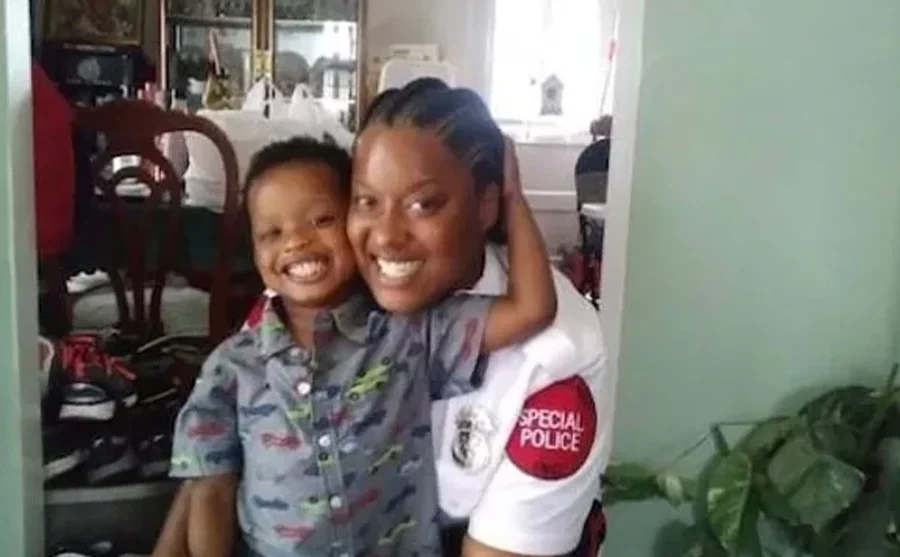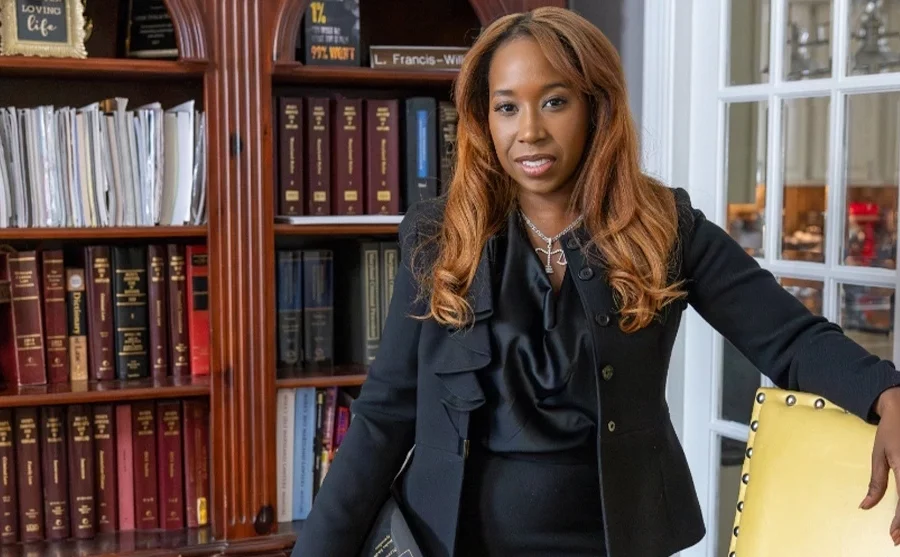Baltimore’s spending panel is set to pay nearly $2.5 million to resolve lawsuits from 11 men and one woman who say they were either wrongfully searched, falsely arrested, robbed or beaten by rogue police officers, nearly all working in the disgraced Gun Trace Task Force.
The Board of Estimates is scheduled Wednesday to approve the money in a second wave of payments to settle complaints about the corrupt police squad. These new payments push to $2.7 million the amount paid so far to 21 people who sued. Baltimore attorney Latoya Francis-Williams said these settlements are long overdue considering the police department was handing out awards to the officers even as they robbed people on the streets. Francis-Williams holds city officials responsible, saying they turned a blind eye to such conduct.
“It’s high time that they atone for the city’s behavior,” she said. Her client, Garfield Redd, is set to receive the biggest settlement: $500,000. Redd was sentenced to 20 years in federal prison in 2007 for possessing a firearm as a convicted felon. The money resolves a federal lawsuit he filed four months ago in which he says police planted the gun on him. Redd remains in prison.
“It’s high time that they atone for the city’s behavior,”
“We’re grateful that Mr. Redd is able to put this portion of his tragic event behind him, but he is still on the path to clearing his name,” Francis-Williams said. Eight former members of the Gun Trace Task Force were convicted of racketeering and sentenced to federal prison. The officers — six accepted plea deals, two were found guilty — stole money from citizens, lied on paperwork and bilked the city for unearned overtime pay. A ninth cop, one in Philadelphia, also was convicted in the case. These men are serving federal prison sentences that range from seven to 25 years.
Dozens of people have sued the city over the officers’ actions. Amid the fallout, federal prosecutors charged several other police officers with ties to the convicted cops.
Last month, the Board of Estimates approved paying $253,000 to nine people who said they were victimized by the officers.
The latest round of settlement payments also includes:
$400,000 to Dawud Morris who served about five years in prison on gun charges. He says the officers faked a search warrant and planted the gun.
$300,000 to Shawn Whiting, who spent three years in prison on drug charges and says police stole $24,000 in cash while searching his home.
$165,000 to Blanton Roberts, who served two years in prison after he says police planted a gun on him.
City Solicitor Dana Moore did not return a message Monday. Her office considered each case individually before recommending the board approve the payments, they wrote in the Board of Estimates agenda.
“As with all lawsuits, the Law Department analyzes the strengths and weaknesses of each case upon receipt of the Complaint,” the city’s attorneys wrote. “We believe these settlements to be in the best interest of both the City and the plaintiffs who may have been harmed by the misconduct of former GTTF members.”


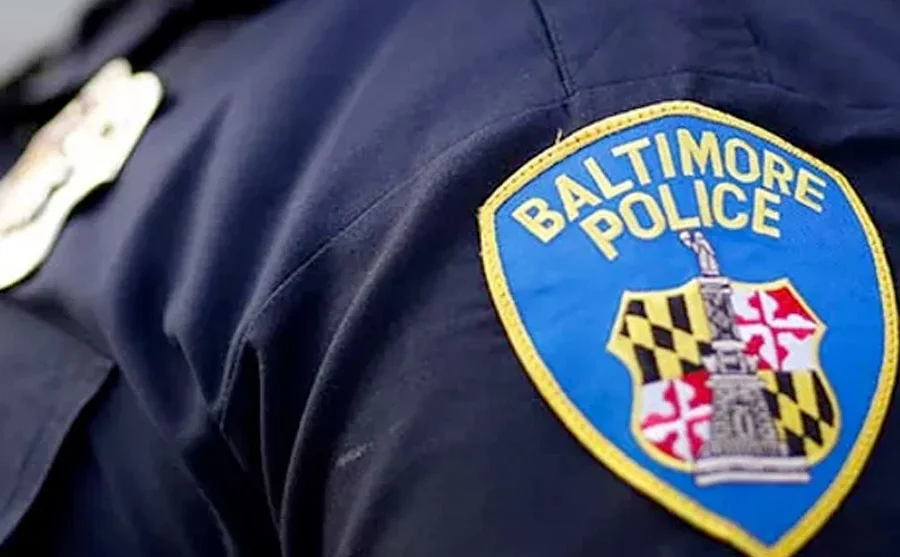
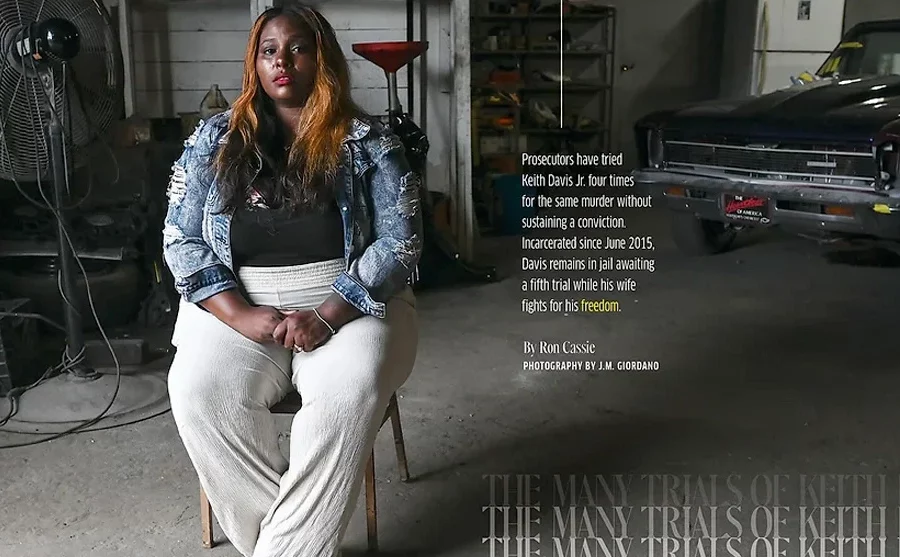
 ABOVE: KEITH DAVIS JR. IN THE HOSPITAL AFTER THE SHOOTING. BELOW: KEITH DAVIS JR. IN THE HOSPITAL AFTER THE SHOOTING. OPENING PHOTO: KELLY DAVIS VISITS THE GARAGE FOR THE FIRST TIME WHERE POLICE FIRED MORE THAN 30 ROUNDS—MANY BULLET HOLES ARE STILL VISIBLE—AT HER HUSBAND
ABOVE: KEITH DAVIS JR. IN THE HOSPITAL AFTER THE SHOOTING. BELOW: KEITH DAVIS JR. IN THE HOSPITAL AFTER THE SHOOTING. OPENING PHOTO: KELLY DAVIS VISITS THE GARAGE FOR THE FIRST TIME WHERE POLICE FIRED MORE THAN 30 ROUNDS—MANY BULLET HOLES ARE STILL VISIBLE—AT HER HUSBAND
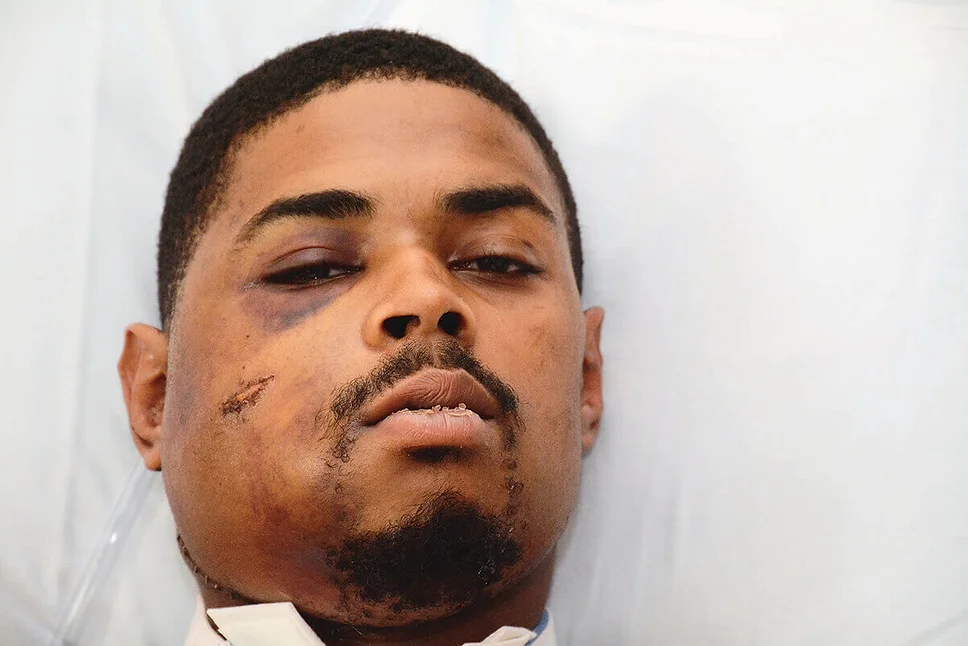 IN JANUARY 2016, seven months after surviving that barrage of police gunfire inside Big Herb’s Auto Repair, Keith Davis Jr. was found not guilty of the armed robbery when the driver repeated what he’d said all along: The cops chased and shot the wrong guy. Davis, who’d just bought a pack of cigarettes from a convenience store, had run, with others, when someone yelled, “Gun!”—dashing across Reisterstown Road into Big Herb’s alley garage. Shortly before going to court, prosecutors had dropped the most serious charges, the counts of firing a weapon at police. Kelly thought her nightmare was coming to a close.
Instead, days after Davis’ acquittal, the City State’s Attorney’s Office—without a hint to Davis, his family, Kelly, or his defense attorney since his shooting by police—indicted him for murder in the seemingly unrelated slaying of a Pimlico security guard. Five hours before the hack driver had been robbed, Kevin Jones had been brutally shot 11 times, including in his mouth and head, while walking to work across the racetrack’s parking lot.
To date, the State’s Attorney’s Office has failed four times to convict Davis of the same murder. Incarcerated ever since he was moved from Sinai to Central Booking with shrapnel still in his neck, Davis now awaits a fifth murder trial set for May. That prosecutors dropped the charge of shooting at police, lost the armed robbery case, and now are 0-for-4 on the homicide charge, is not surprising. In 2018, the Civilian Review Board recommended suspending two officers and terminating two others involved in the Davis shooting for their excessive use of force, and the “serious discrepancies” and “lack of credibility” in their testimony. One of the first two officers on the scene, Catherine Filippou, later resigned when it was revealed the FBI was investigating her alleged involvement in a drug trafficking ring.
To say there have been other red flags in the five Davis trials is an understatement. To name a few: the state’s introduction of a professional jailhouse informant, a discredited drug cartel enforcer, at the second murder trial; the state’s “accidental” disclosure of surveillance video during the third murder trial; and the strange actions and contradictory testimony of not just the police at the scene, but lead detective Mark Veney, who inexplicably did not turn victim Kevin Jones’ two cellphones over to evidence collection for 11 months. Veney’s testimony has been so shaky throughout the trials, including the invention of a fictitious BPD investigator, that he was not called to the stand by prosecutors at the most recent trial, but by the defense.
Then there are the elephants in the courtroom. Prosecutors don’t have evidence Keith Davis Jr. and Kevin Jones knew each other. They don’t have DNA linking the men. They don’t have a motive.
Only one other person in U.S. history has been tried six times in total around the same incident, according to research by University of South Carolina law professor Colin Miller. Following a U.S. Supreme Court decision overturning his last conviction, Curtis Flowers was freed two years ago from a Mississippi jail after 22 years behind bars. Flowers filed suit this fall against the prosecutor in his case.
There’s a kicker, too. This summer, after a conviction in his fourth murder trial was overturned and Davis was due to be released, the State’s Attorney’s Office added a fresh charge of attempted first-degree murder for a prison fistfight a year earlier. In the surveillance video outside the cell where the brief fight took place, both Davis, a slight 152 pounds, and the man he fought, who did require stitches, walked away from that brawl unassisted. No weapon was recovered, according to charging documents.
“Keith Davis Jr.,” says Miller, who co-hosts the podcast Undisclosed, which investigates wrongful convictions and highlighted Davis’ case in 2019, “is the most aggressively prosecuted man in American history.”
IN JANUARY 2016, seven months after surviving that barrage of police gunfire inside Big Herb’s Auto Repair, Keith Davis Jr. was found not guilty of the armed robbery when the driver repeated what he’d said all along: The cops chased and shot the wrong guy. Davis, who’d just bought a pack of cigarettes from a convenience store, had run, with others, when someone yelled, “Gun!”—dashing across Reisterstown Road into Big Herb’s alley garage. Shortly before going to court, prosecutors had dropped the most serious charges, the counts of firing a weapon at police. Kelly thought her nightmare was coming to a close.
Instead, days after Davis’ acquittal, the City State’s Attorney’s Office—without a hint to Davis, his family, Kelly, or his defense attorney since his shooting by police—indicted him for murder in the seemingly unrelated slaying of a Pimlico security guard. Five hours before the hack driver had been robbed, Kevin Jones had been brutally shot 11 times, including in his mouth and head, while walking to work across the racetrack’s parking lot.
To date, the State’s Attorney’s Office has failed four times to convict Davis of the same murder. Incarcerated ever since he was moved from Sinai to Central Booking with shrapnel still in his neck, Davis now awaits a fifth murder trial set for May. That prosecutors dropped the charge of shooting at police, lost the armed robbery case, and now are 0-for-4 on the homicide charge, is not surprising. In 2018, the Civilian Review Board recommended suspending two officers and terminating two others involved in the Davis shooting for their excessive use of force, and the “serious discrepancies” and “lack of credibility” in their testimony. One of the first two officers on the scene, Catherine Filippou, later resigned when it was revealed the FBI was investigating her alleged involvement in a drug trafficking ring.
To say there have been other red flags in the five Davis trials is an understatement. To name a few: the state’s introduction of a professional jailhouse informant, a discredited drug cartel enforcer, at the second murder trial; the state’s “accidental” disclosure of surveillance video during the third murder trial; and the strange actions and contradictory testimony of not just the police at the scene, but lead detective Mark Veney, who inexplicably did not turn victim Kevin Jones’ two cellphones over to evidence collection for 11 months. Veney’s testimony has been so shaky throughout the trials, including the invention of a fictitious BPD investigator, that he was not called to the stand by prosecutors at the most recent trial, but by the defense.
Then there are the elephants in the courtroom. Prosecutors don’t have evidence Keith Davis Jr. and Kevin Jones knew each other. They don’t have DNA linking the men. They don’t have a motive.
Only one other person in U.S. history has been tried six times in total around the same incident, according to research by University of South Carolina law professor Colin Miller. Following a U.S. Supreme Court decision overturning his last conviction, Curtis Flowers was freed two years ago from a Mississippi jail after 22 years behind bars. Flowers filed suit this fall against the prosecutor in his case.
There’s a kicker, too. This summer, after a conviction in his fourth murder trial was overturned and Davis was due to be released, the State’s Attorney’s Office added a fresh charge of attempted first-degree murder for a prison fistfight a year earlier. In the surveillance video outside the cell where the brief fight took place, both Davis, a slight 152 pounds, and the man he fought, who did require stitches, walked away from that brawl unassisted. No weapon was recovered, according to charging documents.
“Keith Davis Jr.,” says Miller, who co-hosts the podcast Undisclosed, which investigates wrongful convictions and highlighted Davis’ case in 2019, “is the most aggressively prosecuted man in American history.”
